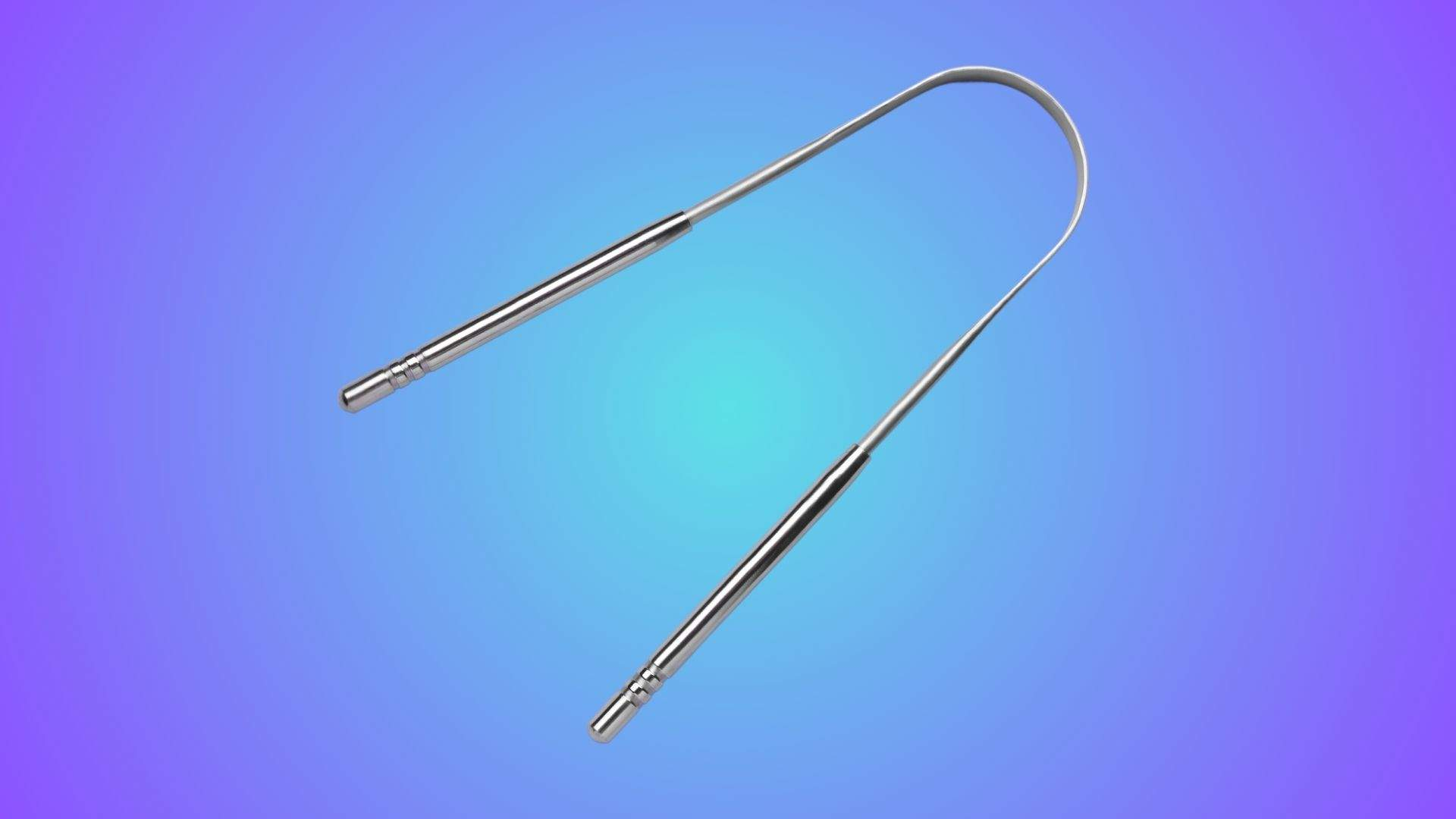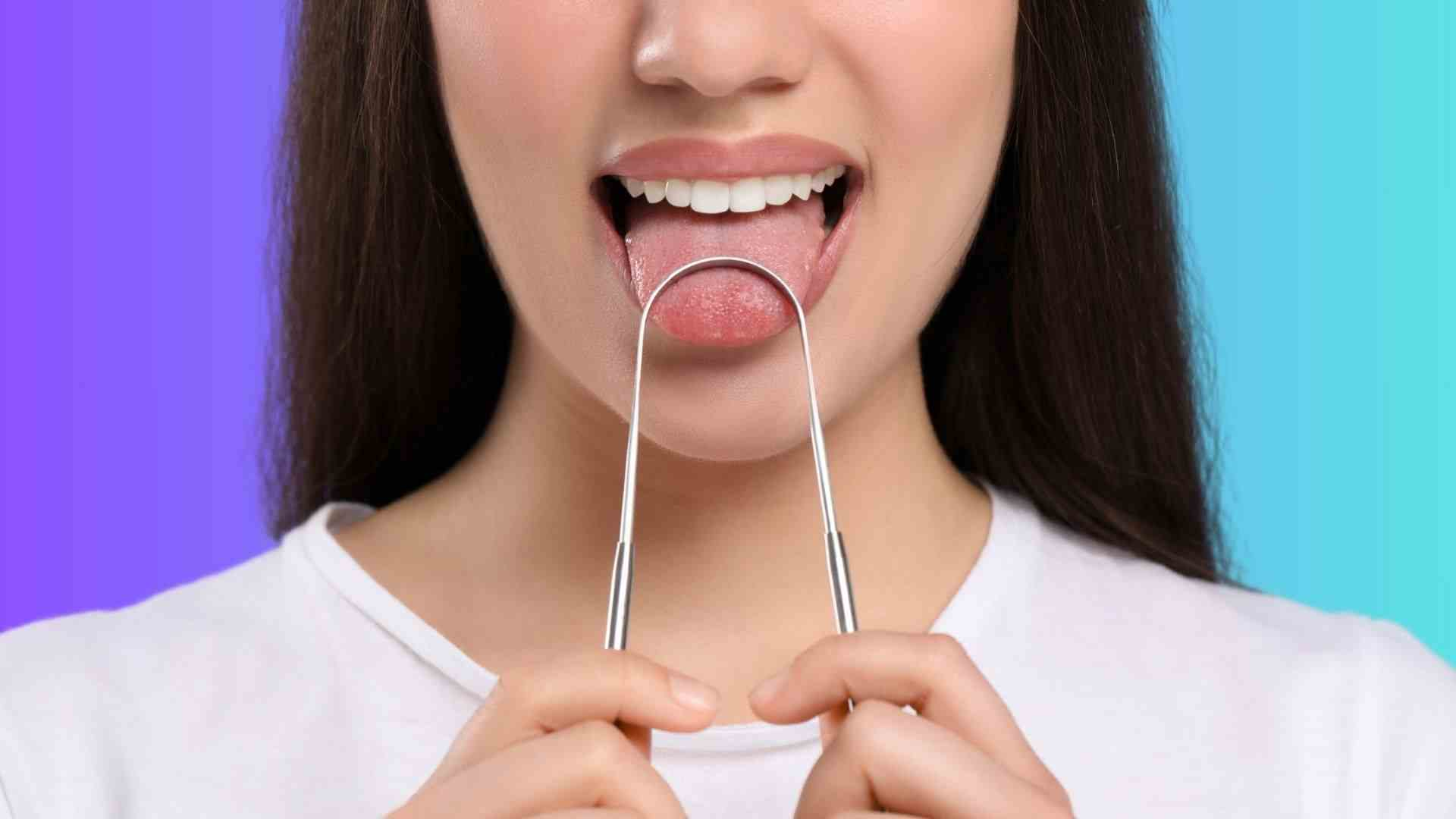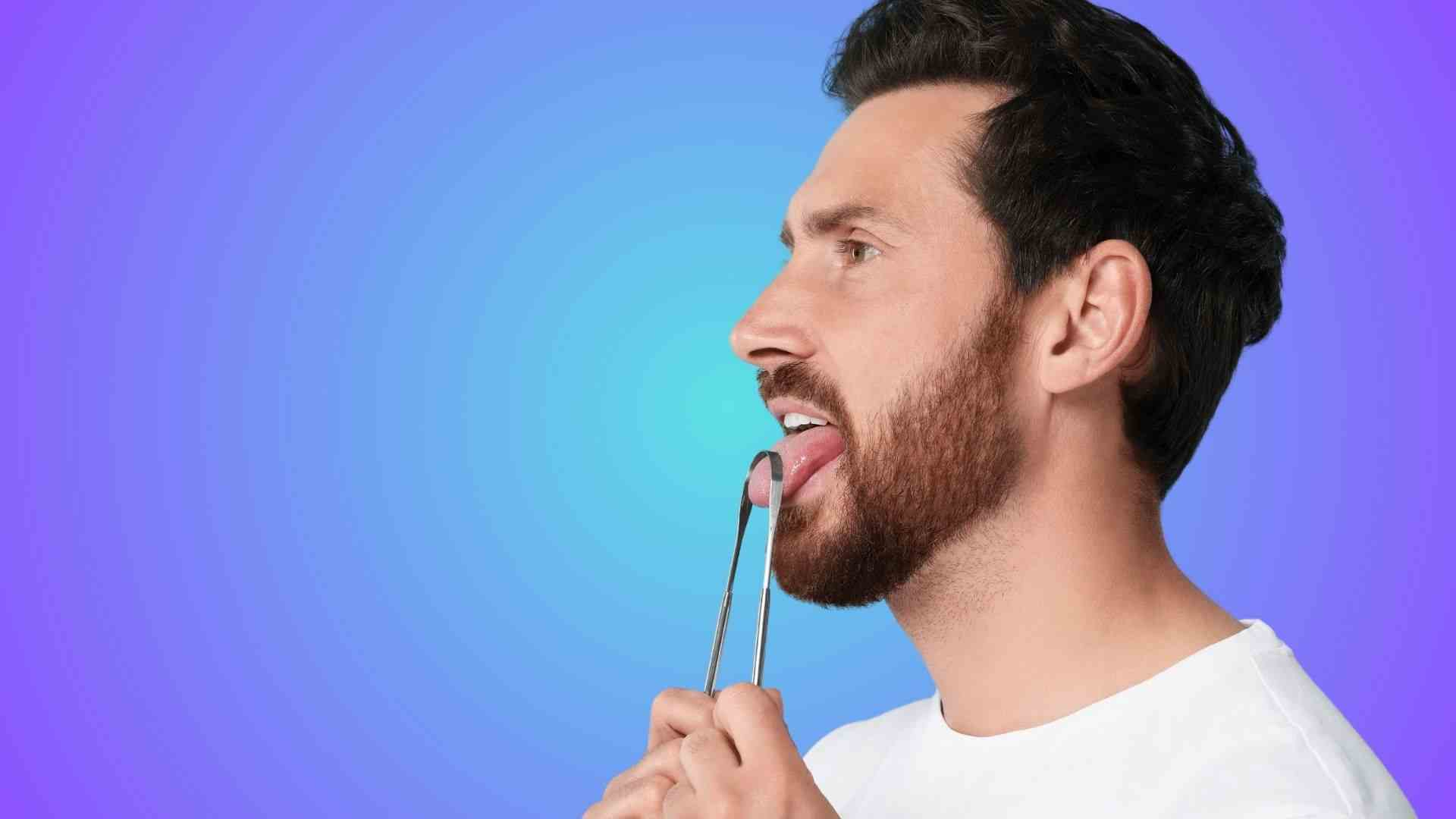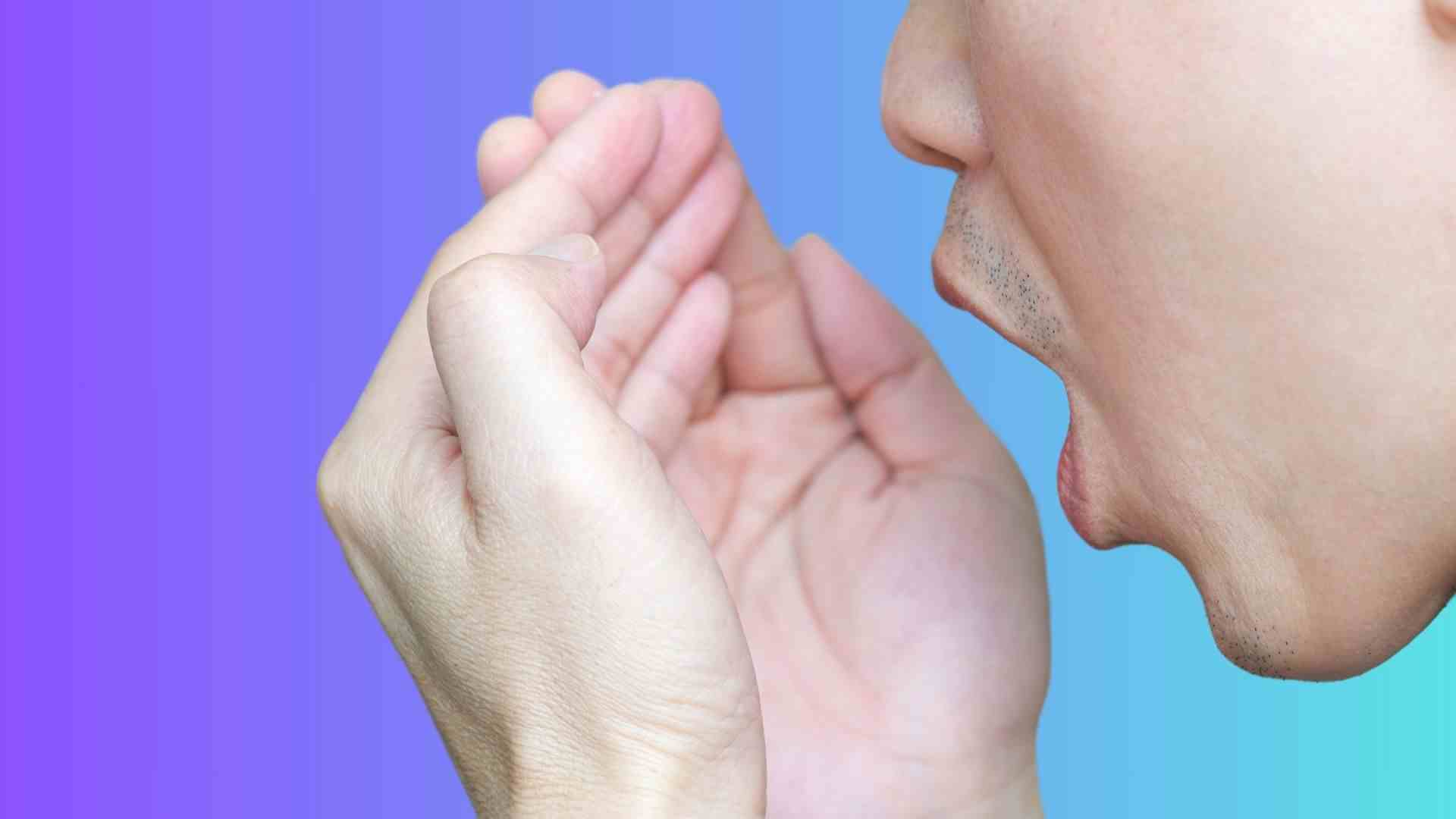Benefits of Tongue Scraper
Did you know your tongue harbors millions of bacteria, dead cells, and debris that contribute to bad breath and oral health issues?
Don't worry, there's a simple way to combat this problem and improve your oral hygiene routine – it's called tongue scraping!
By using tongue scrapers regularly and correctly, you can experience amazing benefits, such as:
-
removing bacteria and dead cells
-
fresher breath
-
improved oral hygiene
-
convenience and accessibility
-
and improved sense of taste.
Plus, tongue scraping can also help enhance the effectiveness of your toothbrushing and flossing routine by clearing away the initial layer of bacteria and debris.
In this article, we'll explore the various benefits of using a tongue scraper for enhancing oral health, freshening breath, and improving your overall hygiene routine.
What are tongue scrapers?

A tongue scraper is a small, handheld tool designed to remove bacteria, food debris, and dead cells from the surface of your tongue. It typically consists of a thin, curved metal or plastic head with a textured surface and a handle for easy grip.
Tongue scrapers come in various shapes and sizes, but they all serve the same purpose of improving oral hygiene by cleaning your tongue and removing tongue coating.
Using a tongue scraper is a simple and effective way to reduce bad breath, reduce bacteria buildup, and promote overall oral health.
Do tongue scrapers work?
Yes, tongue scrapers work effectively to remove bacteria, debris, and dead cells from the surface of your tongue, thereby improving overall oral health and reducing your risk of bad breath and gum disease.
Using tongue scrapers helps to physically lift and remove the buildup that accumulates on your tongue over time. This buildup, known as tongue coating, is a breeding ground for bacteria that can contribute to oral health problems.
Further, while tongue brushing works, research indicates that is not as effective as tongue scraping at fighting bad breath and removing harmful bacteria.
Now, for best results, you should use a tongue scraper before brushing your teeth. Scraping your tongue beforehand helps eliminate bacteria from its surface, preventing them from spreading around your mouth during brushing.
Benefits of Tongue Scraping

In this section, we'll walk through some of the key benefits of tongue scraping, a daily practice you can incorporate to fight bad breath and improve your overall dental health.
Removes Bacteria and Dead Cells
Tongue scraping is one of the most effective methods for eliminating bacteria, food debris, and dead cells from the surface of your tongue. By gently scraping your tongue, you can remove these kinds of impurities that contribute to bad breath and other potential oral health issues.
Fresher Breath
One of the primary benefits of tongue scraping is its ability to reduce bad breath. Studies conclude that using mechanical tongue scraping methods are effective at fighting halitosis thanks to their ability to remove odor-causing bacteria and other particles from your tongue's surface.
That said, if you consistently experience bad breath, it may be caused by tooth decay or something else entirely. Therefore, be sure to seek out professional medical advice if you're experiencing chronic bad breath.
Improves Sense of Taste
One of the most interesting benefits is that tongue scraping not only promotes better oral hygiene but also enhances taste sensation. By eliminating buildup that can dull taste buds, tongue scraping allows for a more vibrant and enjoyable eating experience so you can fully savor the flavors of all your favorite foods and beverages.
Convenient and Accessible
Incorporating tongue scraping into your daily oral care routine is quick, easy, and convenient. It requires minimal time and effort but provides significant benefits, making it an excellent addition to your existing dental hygiene practices.
Improves Oral Health
Overall, tongue scraping contributes to better oral health by promoting cleaner teeth and gums, fresher breath, and enhanced taste perception. By incorporating tongue scraping into your daily routine, you can enjoy the benefits of a healthier mouth, fresher breath, and an overall more confident smile.
Is tongue scraping safe?
Yes, tongue scraping is a generally safe practice when performed correctly and with care.
In fact, studies suggest that regular tongue scraping can contribute to a reduction in volatile sulfur compounds, which are often responsible for bad breath. Moreover, it can enhance your sense of taste by removing the coating that accumulates on our tongues, potentially blocking taste receptors.
However, it's important to know how to use a tongue scraper properly to avoid any potential harm. To make it safer and more effective you should:
-
Choose a proper tongue scraper: stainless steel, copper, or food-grade plastic.
-
Apply gentle pressure to avoid irritation.
-
Clean the scraper before and after each use with hot water and soap.
-
Adjust scraping frequency as needed, possibly daily or a few times a week.
When done with attention to these considerations, tongue scraping can be a safe and beneficial addition to your oral hygiene routine.
How to Use Tongue Scrapers

To use a tongue scraper effectively, follow these simple steps:
-
Prepare the Tongue Scraper: Hold the tongue scraper with both of your hands, ensuring that the scraping edges are facing downward and away from your tongue.
-
Position the Scraper: Extend your tongue out of your mouth as far as comfortably possible. Place the rounded edge of the scraper at the back of your tongue, near your throat, ensuring that it covers as much surface area as possible.
-
Scrape Your Tongue: With gentle pressure, drag the scraper forward along the surface of your tongue toward the tip. Avoid pressing too hard to prevent irritation or discomfort. Repeat this scraping motion several times, covering the entire surface of the tongue.
-
Rinse the Scraper: After each scraping pass, make sure to rinse the scraper under running water to remove any debris or residue. You can also wipe it clean with a tissue or cloth if necessary.
-
Repeat as Needed: Continue scraping your tongue until no more residue is removed, typically around 5-10 scraping passes. Be sure to focus on the center and back areas of the tongue, where bacteria and debris tend to accumulate most.
-
Clean the Scraper: Once you've finished scraping your tongue, thoroughly clean the scraper with soap and water or an alcohol-based solution to prevent bacterial buildup between uses.
Finally, after tongue scraping, make sure to use expanding floss, toothpaste tablets, and alkaline mouthwash to thoroughly clean your mouth and remove any other remaining bacteria.
What does tongue scraping not solve?
Tongue scraping, while beneficial for oral hygiene, does not address all aspects of dental health.
For instance, it doesn't remineralize teeth, a process for which dentists recommend nano hydroxyapatite toothpaste due to its ability to help repair and strengthen the enamel.
Additionally, tongue scraping does not clean along the gum line, an area where plaque and bacteria can accumulate, leading to gum disease; for this, expanding floss or other interdental cleaning tools are necessary to effectively remove debris and plaque between teeth.
Some individuals also incorporate herbal mouthwash into their routine to further freshen breath and provide a more comprehensive approach to oral health, addressing areas and issues that tongue scraping alone cannot.
Therefore, while tongue scraping is a useful practice for oral health, it is important to complement it with nano hydroxyapatite toothpaste, expandable floss, and alkaline mouthwash to address specific dental concerns comprehensively.
What are the side effects of tongue scraping?
Side effects of tongue scraping are generally mild and rare but may include irritation or soreness if you accidentally apply too much pressure while scraping.
Scraping too vigorously can also cause small cuts or abrasions on your tongue's surface.
Additionally, using an unclean metal tongue scrapers or one made of materials that could harbor bacteria may cause infections. Therefore, you should always use a clean metal tongue scraper.
However, when done correctly with a clean, proper tongue scraper, side effects are minimal, and tongue scraping can be a safe and effective practice for improving your oral hygiene.
What causes bad breath?

Studies have shown that up to 90% of bad breath cases originate from the tongue's surface. This bad breath can have various underlying causes, including:
-
Poor Oral Hygiene: Without proper brushing and flossing practices, plaque can build up on your teeth and gums. This plaque can cause bad breath.
-
Diet: Consuming strong-smelling foods like garlic, onions, certain spices, and acidic foods can contribute to temporary bad breath.
-
Bacteria in Our Mouths: Bacteria naturally present in our mouths can break down food particles, releasing sulfur compounds that use that characteristic bad breath. In fact, this is a common cause of morning breath.
-
Dry Mouth (Xerostomia): Saliva plays a crucial role in rinsing away food particles and bacteria in the mouth. Dry mouth can occur due to factors such as medication side effects, certain medical conditions, or dehydration, leading to bad breath.
-
Tobacco Smoking: Smoking tobacco products can leave residues in the mouth and lungs, which can contribute to bad breath. The chemicals in tobacco smoke can also dry out the mouth, further exacerbating the issue.
Thankfully, we can treat bad breath through methods like brushing with nano hydroxyapatite toothpaste and using a tongue scraper and expandable floss daily to remove plaque, odor causing bacteria, and food particles.
Other Tips for Great Oral Health
In addition to incorporating tongue scraping into your oral care routine, there are several other tips you can follow to improve your oral health.
Brush with Nano Hydroxyapatite Toothpaste
Brushing with nano hydroxyapatite toothpaste is beneficial for strengthening tooth enamel, remineralization, and preventing and reversing tooth decay.
Nano hydroxyapatite is a natural mineral that makes up the majority of our tooth structure and has been shown to remineralize enamel, making it more resistant to acid attacks from bacteria.
By using toothpaste with nano hydroxyapatite, you can help protect your teeth from decay and maintain a healthy smile.
Use Expanding Floss Daily
Using expanding floss daily is essential for removing plaque and food particles from between your teeth and along the gumline. Expanding floss is designed to expand when it comes into contact with saliva, allowing it to clean more effectively between tight spaces and beneath the gumline.
By flossing daily, you can reduce your risk of demineralization and tooth decay, gum issues, and bad breath.
Avoid Smoking and Consuming Tobacco Products
Avoiding smoking and consuming tobacco products is crucial for maintaining good oral health. Tobacco use can lead to a wide range of dental problems, including stained teeth, bad breath, gum disease, and oral cancer.
Quitting smoking and avoiding other tobacco products can significantly improve your oral health and reduce your risk of developing serious dental issues in the future.
Swap Out Your Toothbrush Every 3 Months
Swapping out your toothbrush every three months is important for maintaining effective oral hygiene. Over time, toothbrush bristles can become worn and frayed, making them less effective at removing plaque and debris from your teeth and gums.
By replacing your toothbrush regularly, you ensure that you're using a tool that can clean your teeth effectively and help prevent oral health problems down the line.
Frequently Asked Questions
Is it healthy to scrape your tongue?
Yes, it is generally healthy to scrape your tongue as part of your daily oral hygiene routine. Tongue scrapers can remove bacteria, food debris, and dead cells from the surface of your tongue, which may help reduce bad breath and promote overall oral health. They can also enhance your sense of taste by keeping the taste buds exposed and unobstructed. However, it's important to use a proper tongue scraper and employ gentle techniques to avoid irritation or damage to the tongue. Incorporating tongue scraping into your oral care routine, along with regular brushing and flossing, can contribute positively to maintaining a clean and healthy mouth.
How often should you use a tongue scraper?
You should use a tongue scraper once or twice daily, ideally as part of your morning and evening oral hygiene routine. This frequency helps maintain oral health by regularly removing bacteria and debris without causing irritation or harm to the tongue's surface. However, individual needs may vary, so it's important to listen to your body and adjust if you experience any discomfort.
Do dentists recommend tongue scraper?
Yes, dentists often recommend using a tongue scraper as part of a comprehensive oral hygiene regimen. Tongue scraping helps remove bacteria, food debris, and dead cells from the surface of our tongues, which can otherwise contribute to bad breath and oral health issues if left untreated. By incorporating tongue scraping into your daily routine, you can improve breath freshness and promote better overall oral hygiene.
How does tongue scraping help gut health?
Tongue scraper can indirectly benefit gut health by reducing the number of bacteria and toxins that are swallowed. While its primary aim is to improve oral hygiene by removing bacteria, food debris, and dead cells from the tongue, this process can potentially decrease the load of harmful bacteria entering the digestive system. A cleaner mouth might contribute to a healthier gut environment by minimizing the introduction of unwanted pathogens that could disrupt gut flora balance.
What is the disadvantage of using tongue scraper?
One potential disadvantage of using a tongue scraper is that it may cause irritation or discomfort if used too aggressively or if the scraper has sharp edges. Additionally, improper or excessive scraping could potentially damage the delicate surface of your tongue. However, when used correctly and gently, these risks are minimal. It's important to follow proper techniques and avoid overuse to minimize any potential drawbacks.
Which is the better option for you: a tongue scraper or a toothbrush?
Both a tongue scraper and a toothbrush serve important roles in maintaining oral hygiene. A tongue scraper specifically removes bacteria and debris from the tongue, while a toothbrush cleans your teeth and gums. However, regardless of which one you use first, it's best to incorporate both tongue scraping and brushing into your oral care regimen to ensure a more thorough cleaning, addressing areas that brushing alone may not cover.
Is it good to scrape your tongue?
Yes, scraping your tongue is good for maintaining oral hygiene. Studies suggest it effectively removes bacteria, food debris, and dead cells, helping to reduce bad breath and improve overall oral health. Regular tongue scraping can also enhance your sense of taste and complement your daily brushing routine.
Is it good to clean your tongue daily?
Yes, cleaning your tongue daily is beneficial for oral hygiene. It helps remove bacteria and debris, reducing bad breath and lowering the risk of oral health issues. Incorporating tongue cleaning into your daily routine enhances overall mouth cleanliness and supports fresh breath.
Why scrape your tongue in the morning?
Scraping your tongue in the morning helps remove bacteria, food particles, and toxins that accumulate overnight. Morning tongue scraping reduces bad breath and prepares your mouth for a fresh start to the day. It also enhances your sense of taste and supports better oral hygiene throughout the day.
Does tongue scraping remove toxins?
Tongue scraping does not remove toxins from your body, but it helps clean your mouth. It removes bacteria, food particles, and dead cells that can cause bad breath. While it improves oral hygiene, your body naturally removes toxins through the liver and kidneys.
When I scrape my tongue, brown stuff comes off.
The brown stuff on your tongue could be food stains, bacteria, or dead cells. It may also come from drinking coffee, tea, or smoking. Regular tongue scraping and good oral hygiene can help keep your tongue clean and healthy.
What are the benefits of the tongue?
Your tongue helps you taste food, speak clearly, and swallow properly. It also plays a role in keeping your mouth healthy by moving saliva around. A clean tongue can help prevent bad breath and improve your sense of taste.
















